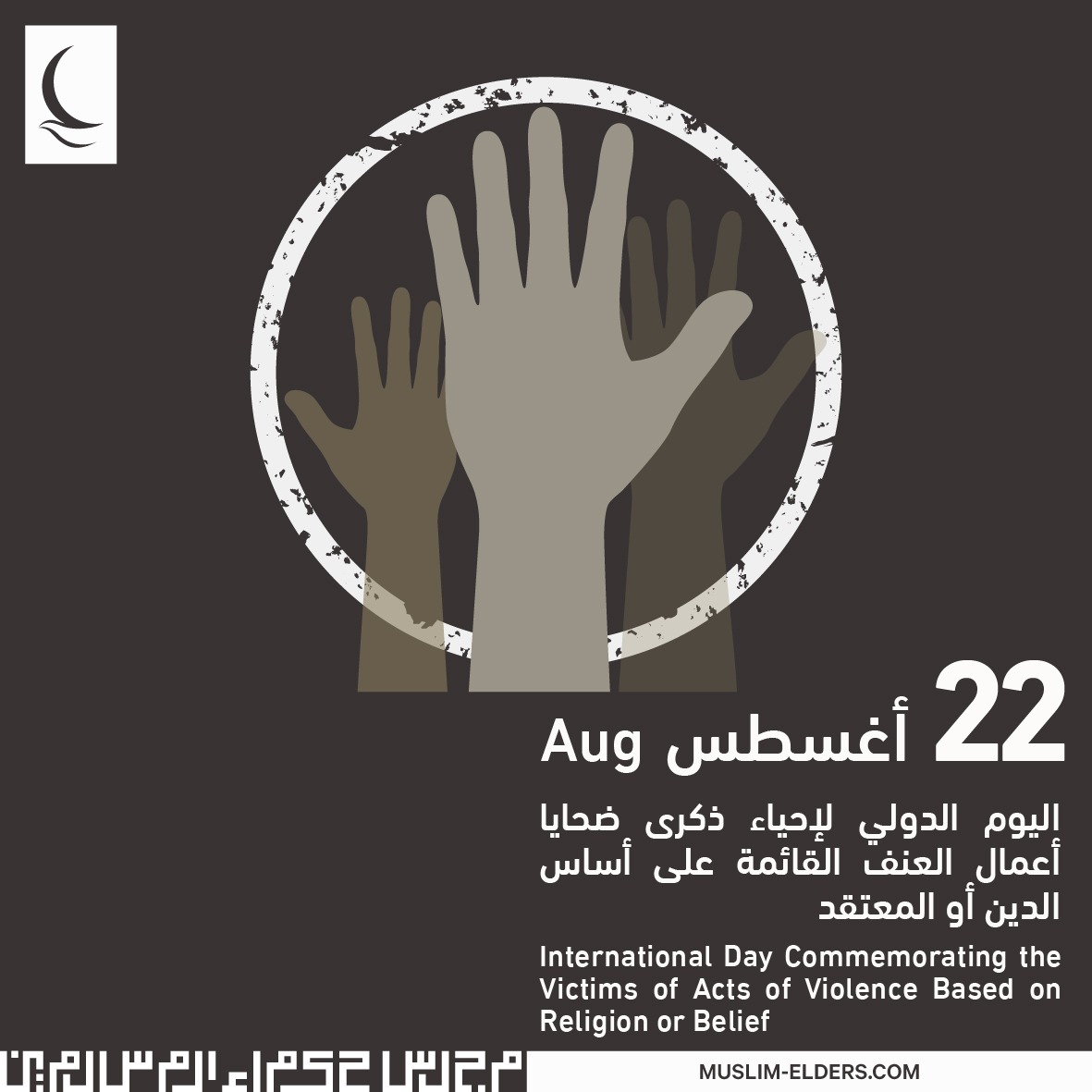On the International Day Commemorating the Victims of Acts of Violence Based on Religion or Belief, the Muslim Council of Elders calls for binding legislation to combat all forms of hate speech, intolerance, and discrimination
The Muslim Council of Elders, under the Chairmanship of His Eminence Dr. Ahmed Al-Tayeb, the Grand Imam of Al-Azhar, emphasizes that combating violence based on religion or belief must be a top priority, especially in light of the growing challenges facing our world today. The Council calls for the enactment of binding international legislation to criminalize hate speech, intolerance, and discrimination, as well as any offense against religious symbols and sanctities.
In a statement issued on the International Day Commemorating the Victims of Acts of Violence Based on Religion or Belief, observed annually on August 22, the Council highlighted that freedom of religion and belief is a fundamental human right. Therefore, promoting this freedom is a cornerstone in efforts to combat intolerance and discrimination based on religion or belief, and it supports the development of societies grounded in the values of tolerance, diversity, acceptance, and respect for others. The Council further noted that religious and cultural pluralism and diversity are manifestations of divine wisdom and should be seen as sources of strength and enrichment for societies, rather than causes of division and conflict.
The Muslim Council of Elders also reaffirms its strong commitment to spreading the values of peace, tolerance, and peaceful coexistence and to building bridges of communication and dialogue among different religions and cultures. This commitment is reflected in its various initiatives, most notably the Document on Human Fraternity, which was co-signed by His Eminence Dr. Ahmed Al-Tayeb, the Grand Imam of Al-Azhar, and His Holiness Pope Francis, Pontiff of the Catholic Church. The document emphasizes the importance of rekindling religious awareness and the need to instill it in the hearts of future generations through proper education, sound upbringing, ethical conduct, and adherence to the true teachings of religion to counter individualism, selfishness, confrontation, extremism, and blind intolerance in all its forms.

